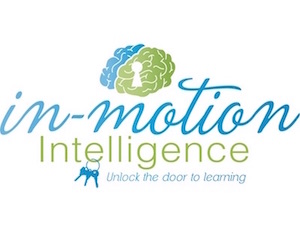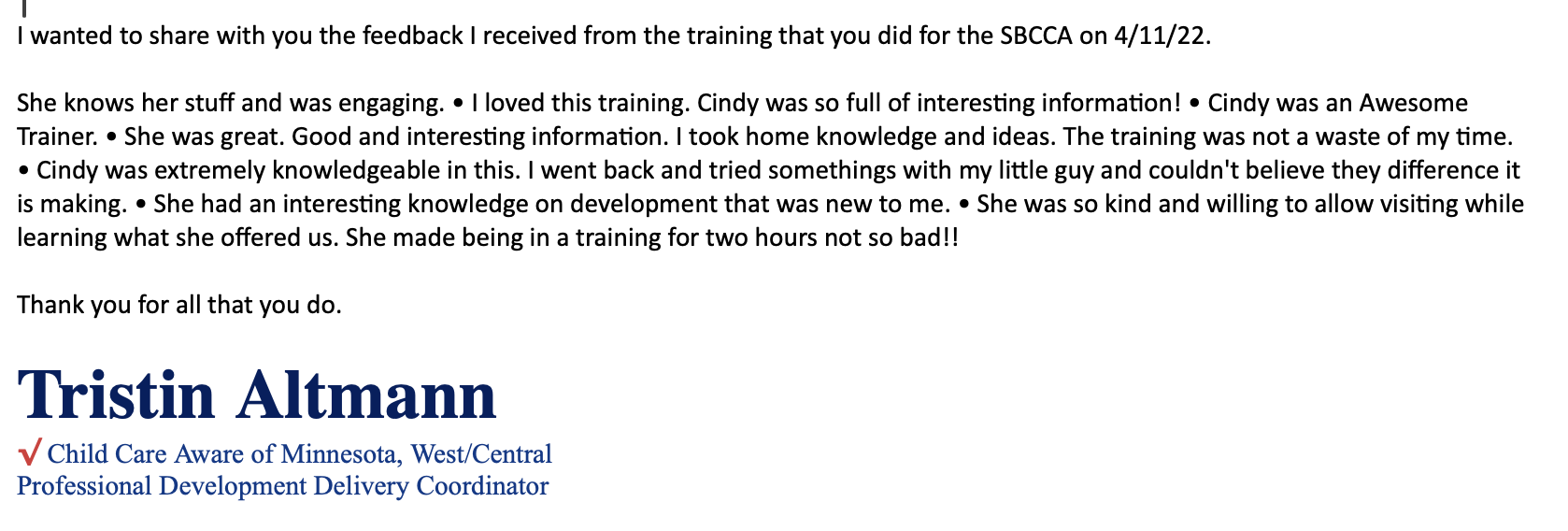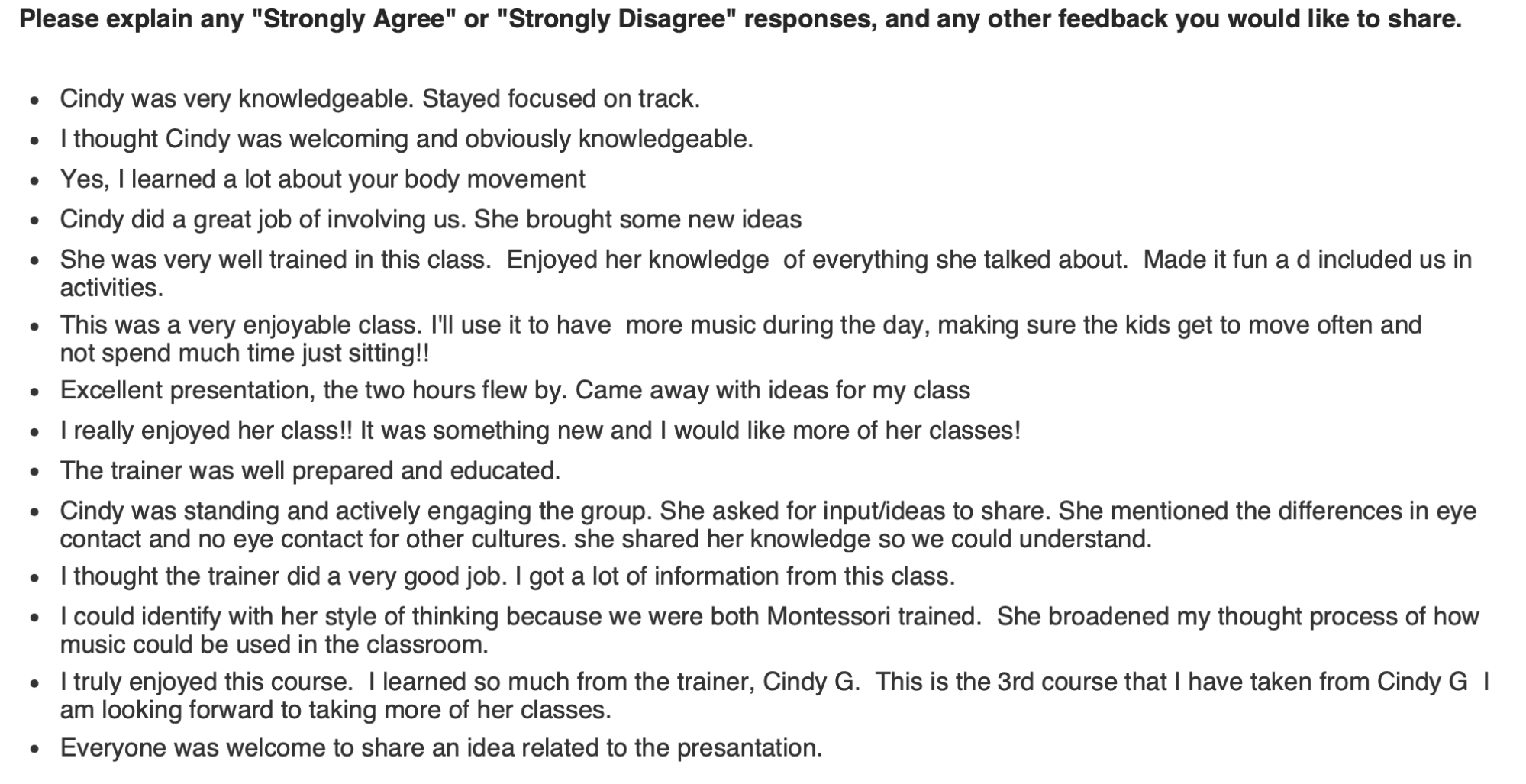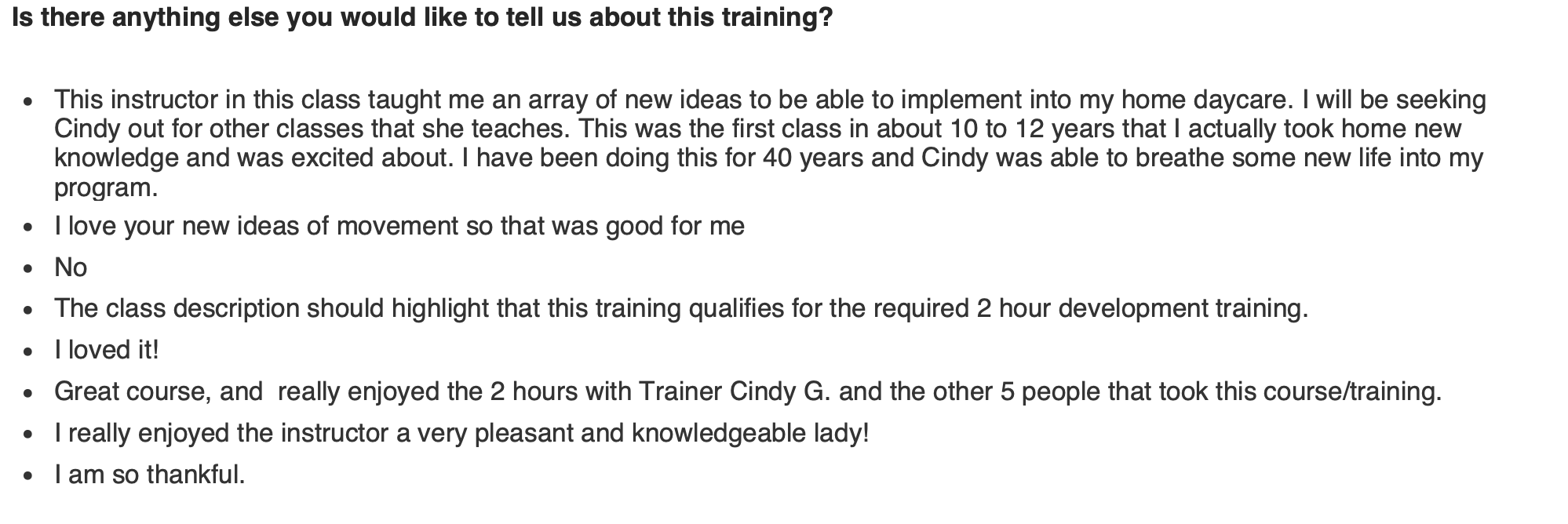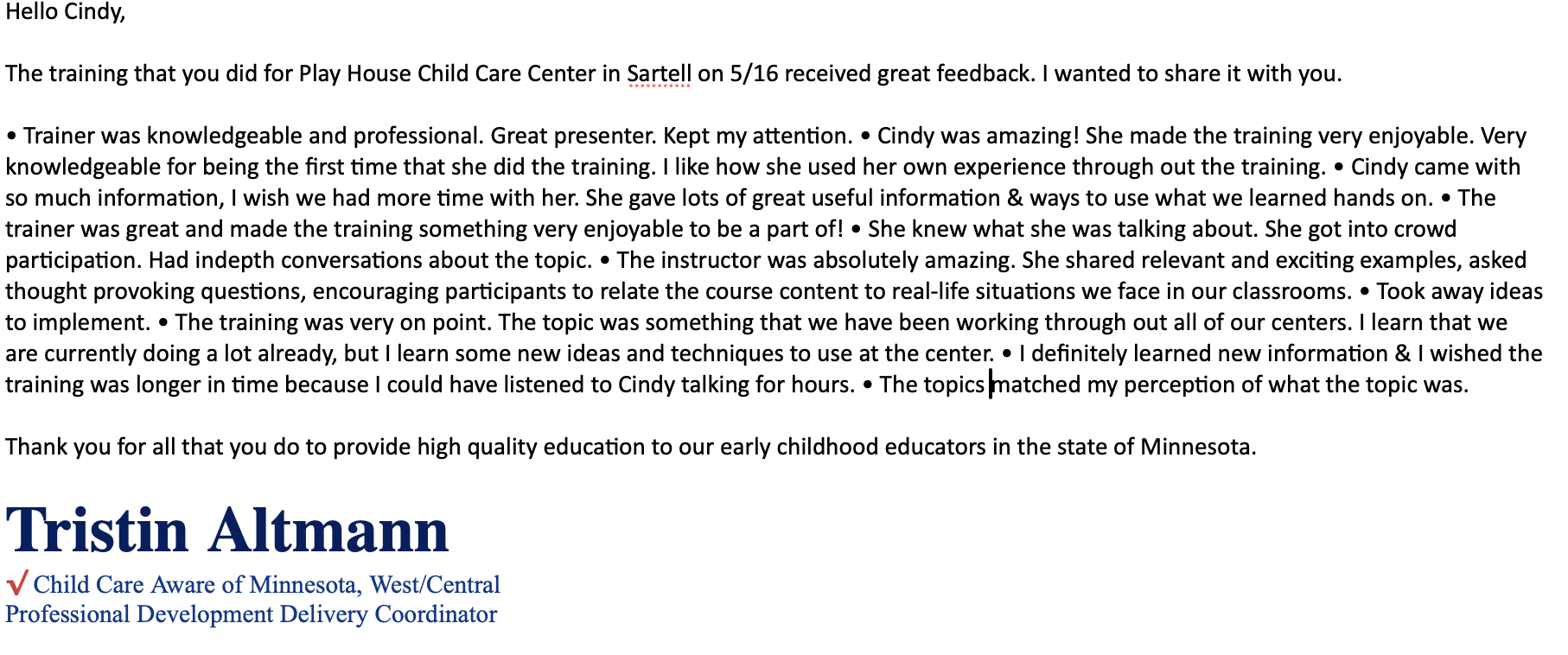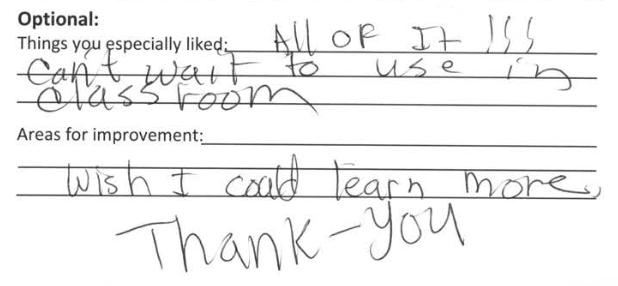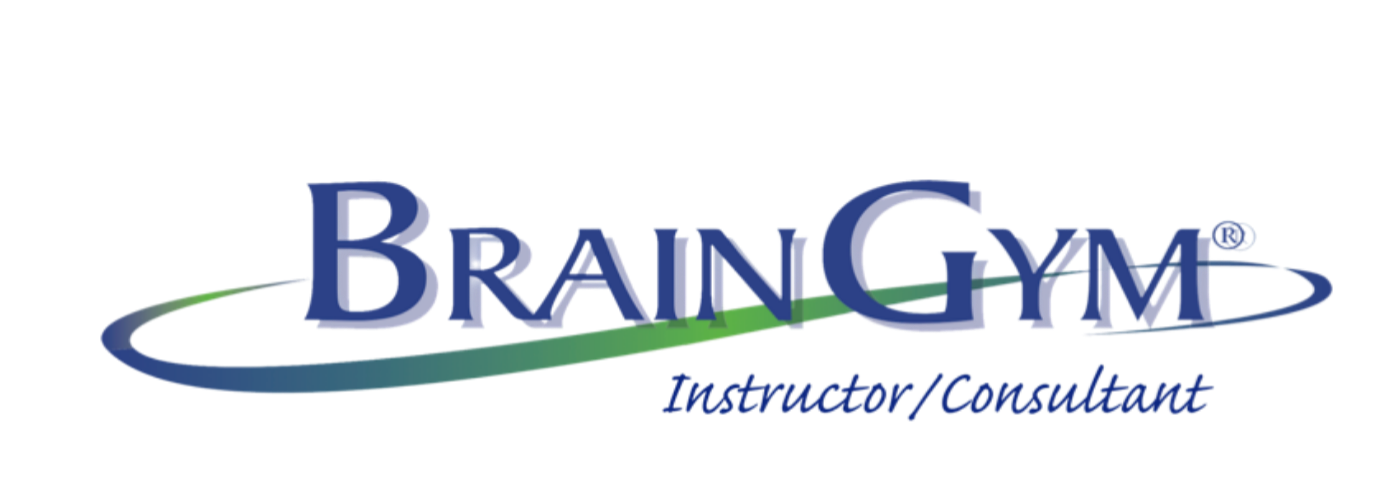Workshops & Events
In Person Events
2/1 Synchronize to Optimize
In person, St. Paul, MN
3/6 Keys to Literacy
In person, Waite Park, MN
3/16 Intentional Movement Works for the Mover in Your Classroom
In person, Denver, CO
3/20 Art: Why does it matter and how to create developmentally appropriate activities
In person, Anoka County, MN
4/14 Five Ways to Incorporate Music in Early Childhood
In person, Shakopee, MN
4/15 Understanding Developmental Movement Patterns
In person, Buffalo, MN
5/13 Art: Why does it matter and how to create developmentally appropriate activities
In person, Hutchinson, MN
10/13 Understanding Developmental Movement Patterns
Online Events
4/21 Art: Why does it matter and how to create developmentally appropriate activities
Online

Tailored Trainings
I have a lot of experience writing course content and I understand learner engagement, objectives, and assessments. I wrote original course content for the University of Wisconsin-River Falls and most recently helped revise Balancing With Seven Dimensions (2024) for the Brain Gym® curriculum.
As a lifelong learner, I continually study and utilize best practices for teaching both online and in person professional development (PD). I know how to present to a variety of learning styles and backgrounds.
Contact me, Cindy@in-motionintelligence.com, to book a tailored training about movement, sensory systems, literacy, art/music, Montessori and/or alternative methods of education.
5 WAYS TO INCORPORATE MUSIC IN EARLY CHILDHOOD
Learn how to teach the physical skill of listening to young children while differentiating between listening and hearing. Explore movement as a benefit of music. Learn how to effectively teach songs about pitch, tempo, rhythm, and beat as well as songs that teach concepts like emotional intelligence, science, social studies, and more. Discover how young children can actually produce music their own music. Integrate music across the curriculum with music history, genre, and subject matter. (2 hours in person)
KCF IIE: Promoting creative development
CDA II: Steps to advance children’s physical and intellectual development
ALTERNATIVE METHODS OF EARLY CHILDHOOD
Explore different early childhood education methodologies that have stood the test of time and continue to be supported by current research. Learn strategies that can be easily and cost-effectively implemented into your current program plan. The course focuses on Montessori, Waldorf, and Reggio Emilio methodologies. This is an experiential course. (12 hours online or 6 hours in person)
KCF II.A: Creating Positive Learning Experiences
CDA VI: Maintaining a commitment to professionalism
ART: WHY DOES IT MATTER AND HOW TO CREATE DEVELOPMENTALLY APPROPRIATE ACTIVITIES
Art is a developmental pathway for self-expression and cultural exploration. Learn how to create specific activities for success across the ages. Make cross-disciplinary connections to literacy, math, science, music, movement and more. Art appreciation using Visual Thinking Strategies (VTS) will be introduced. This course is based on Montessori’s educational methods, including multisensory exploration and a process-oriented approach. (2 hours in person)
KCF IIE: Promoting creative development
CDA II: Steps to advance children’s physical and intellectual development
BACKGROUND ON BEHAVIOR
Look into why certain behaviors may be considered “challenging”. Consider both internal and external factors that can impact behavior. Identify challenging behavior patterns, such as what, when, where, and who. Explore strategies to increase appropriate behavior and support self-regulation. (2 hours in person)
BRAIN GYM® MOVEMENTS
Discover how to build the physical skills of learning in children of all ages with the basic Brain Gym® movements. Experience 26 Brain Gym® activities, learning how to do them and why they support development of the whole child. Explore these simple strategies that bring about changes in focus, organization, comprehension, coordination, communication, memory, and more. (16 hours online synchronous or self-paced)
KCF IIA: Creating positive learning experiences
KCF IIB: Promoting cognitive development
KCF IIC: Promoting social and emotional development
KCF IID: Promoting physical development
CDA III: Positive ways to support children’ social and emotional development
CDA VIII: Principles of child development and learning
KEYS TO LITERACY
Participants will explore effective means to unlocking the literacy code, by developing auditory and visual attention, building vocabulary and inviting movement. Using developmentally appropriate practices, the function and mechanics of writing will be addressed. Learning to write and read is not synonymous with learning to sit! (2 hours in person or online)
LEARNING PROFILES
Discover and honor how one’s brain and body are wired for learning and living. Each person’s unique profile has a huge impact on her approach to new situations and her reaction to stress. This is child development and personal development; techniques learned in this class can be transferred to children and others. (2 hours in person or online)
KCF I: Child Development and Learning
CDA VIII: Principles of Child Development and Learning
MOVEMENT IS THE KEY TO LEARNING
Nerve networks are formed through movement and touch. Reading a book requires subtle eye muscle movement just like kicking a ball requires large motor movements. Explore the physical skills of learning by experiencing Brain Gym processes and exercises. Be amazed at the difference intentional movement makes in one’s ability to focus, remain centered and think rationally. (2 hours online)
PHYSICAL DEVELOPMENT OF CHILDREN
Use the whole body for learning. Connect global human movement patterns (e.g. reflexes) and intentional physical activities to increase focus, enhance creativity, allow children to become grounded and centered and improve sensorial skills such as listening, vision, communication, and eye-hand coordination. This workshop is based on the Brain Gym theory; it is available online or in person. (2 hours in person or online)
SYNCHRONIZE TO OPTIMIZE: IT’S ABOUT BUILDING RELATIONSHIPS
Recognize the energy children, parents, and co-workers bring to the learning space and its impact on focus, social interactions, and communication. Learn how to connect intentionally with others. Strategize how to create a safe environment that supports, educates, and holds space for processing individual experiences. In this course, discover how to get in synch with those around us, in order to optimize our relationships. This in person format uses lecture, scenarios, and discussion. (2 hours in person or online)
UNDERSTANDING DEVELOPMENTAL MOVEMENT PATTERNS
Learn why graceful coordinated movement is not automatic and how to create movement-based opportunities to purposefully anchor the physical skills of learning. Support body awareness with specific activities from floor time to Brain Gym® activities. Define axial versus locomotive movements and explore activities that use one or the other. Expand from basic movements into more advanced movements that build spatial awareness, directionality, patterns and even stillness. (2 hours in person)
Kind Words
Excellent presentation, the two hours flew by. Came away with ideas for my class.
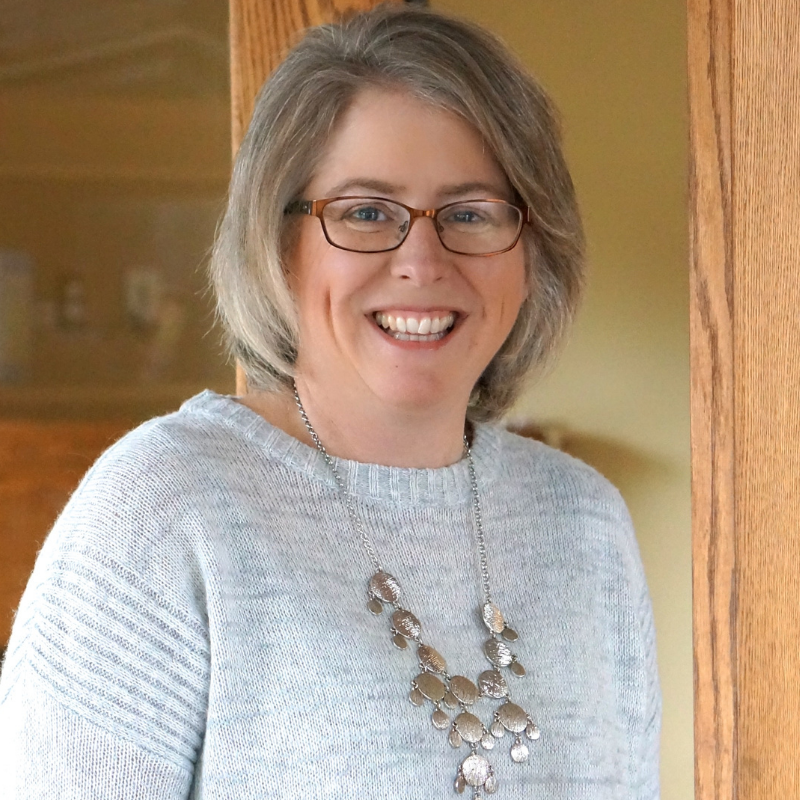
Cindy Goldade
In-Motion Intelligence
I broaden educators’ perspectives, boost their confidence, and foster a genuine passion for working with children, all while sharing practical strategies to support a successful learning environment.
My approach extends beyond mere transfer of knowledge. I create a safe enjoyable learning environment, enhance understanding of existing concepts and teach practical micro-interventions that are developmentally appropriate on physical, mental and emotional levels.
Contact me to tailor a training for you!

Cindy Goldade
In-Motion Intelligence
I broaden educators’ perspectives, boost their confidence, and foster a genuine passion for working with children, all while sharing practical strategies to support a successful learning environment.
My approach extends beyond mere transfer of knowledge. I create a safe enjoyable learning environment, enhance understanding of existing concepts and teach practical micro-interventions that are developmentally appropriate on physical, mental and emotional levels.
